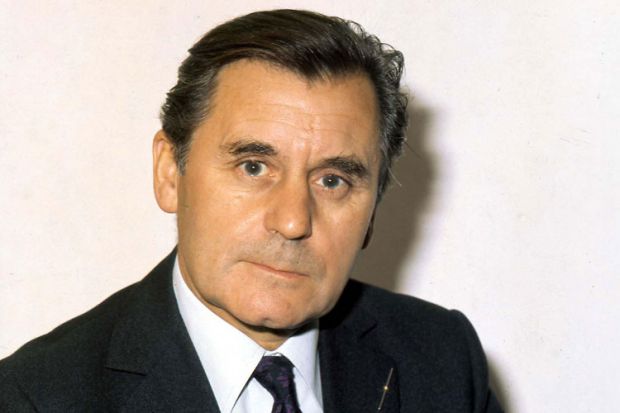Source: Getty
Universally respected as a man as well as a writer and thinker, he is praised in Fred Inglis’ recent biography Richard Hoggart: Virtue and Reward for “the calm consistency with which he incarnates both domestic and intellectual virtues as these are livable in our time”.
Among them are “intellectual straightness and stubbornness, a vigorous egalitarianism, absolute hostility to what is shameful, corrupt and wicked” accompanied by both “unfailing and hospitable courtesy” and “a keen sense of the ridiculous”.
Although he was born into a very poor family in 1918 and had lost both his parents by the age of eight, Professor Hoggart secured a scholarship to study English at his local University of Leeds and, after war service in the Royal Artillery, began his academic career at the University of Hull (1946-59).
An initial study of the poet W. H. Auden was followed by the epoch-making The Uses of Literacy: Aspects of Working Class Life (1957), combining impassioned analysis with powerful descriptions of his own experience.
After a short period at the University of Leicester (1959-62), during which he appeared as one of the most eloquent defence witnesses when D. H. Lawrence’s Lady Chatterley’s Lover was prosecuted for obscenity, Professor Hoggart was appointed professor of English at the University of Birmingham (1962-73).
In 1964, he gave institutional form to his academic interests by establishing the Centre for Contemporary Cultural Studies. Together with Stuart Hall, the director who succeeded him (and also died earlier this year), he therefore became one of the founding fathers who set the agenda for the whole discipline of cultural studies.
He went on to serve as assistant director-general of UNESCo (1971–5) – as described in his 1978 book, An Idea and Its Servants: UNESCO from Within – and ended his career as warden of Goldsmiths, University of London (1975-84). As well as the 1972 BBC Reith Lectures on “culture and communication”, Professor Hoggart kept up a steady stream of books, exploring Europe, education, literature, politics, sociology and old age.
He is survived by his wife Mary and their children Paul and Nicola. The couple’s eldest son, Guardian journalist Simon Hoggart, died in January this year.
Register to continue
Why register?
- Registration is free and only takes a moment
- Once registered, you can read 3 articles a month
- Sign up for our newsletter
Subscribe
Or subscribe for unlimited access to:
- Unlimited access to news, views, insights & reviews
- Digital editions
- Digital access to THE’s university and college rankings analysis
Already registered or a current subscriber? Login
